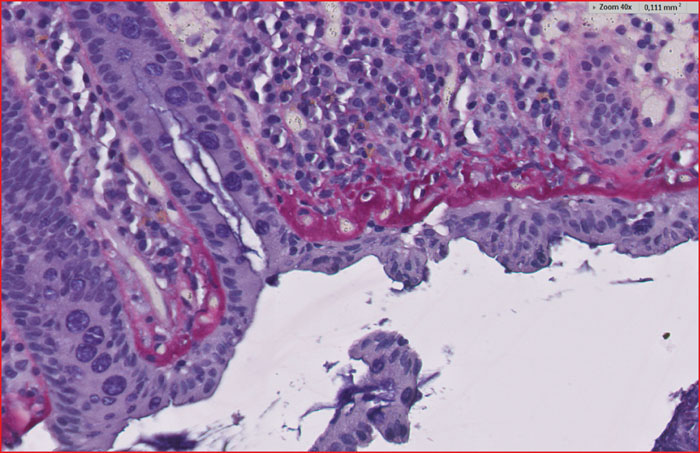Journal de Pharmacie Clinique
MENUCollagenous colitis induced by an unintentional change of proton pump inhibitor: medication reconciliation as a preventive measure? Volume 40, issue 2, Juin 2021
- Key words: microscopic colitis, collagenous colitis, Proton Pump Inhibitors, lansoprazole, medication reconciliation
- DOI : 10.1684/jpc.2021.0458
- Page(s) : 106-11
- Published in: 2021
The goal of medication reconciliation (MR) is to prevent or correct medication errors by focusing on patient transition points, such as hospital admissions or discharges. We report the case of an 88-year-old patient with collagenous colitis probably induced by a proton pump inhibitor, which we believe could have been prevented by MR. The colitis had occurred one and a half months after a hospitalization during which esomeprazole, patient's long-term treatment, was replaced by lansoprazole, which was subsequently continued. It resulted in a 25-day hospitalization and numerous complementary examinations, and evolved favorably after lansoprazole was discontinued. A MR would have made it possible either to stop the proton pump inhibitors, which had no recognized indication in this patient, or to resume the usual esomeprazole treatment on discharge from hospital. This example highlights the key role of the pharmacist and the MR in deprescribing non-essential drugs and securing the patient's pathway.


